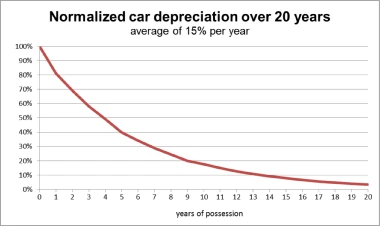How do I Value My Car? Understanding Vehicle Valuations.
Do you want to know how much your car is worth? Whether you’re buying or selling, or maybe just simply curious, understanding the true value of your vehicle is essential. We will help you determine the current fair market price, covering key factors like make and model, the overall age and condition, plus current market trends, so you can confidently answer, “What’s my car worth?”

Why a vehicle valuation matters.
An accurate valuation is crucial for various reasons:
- If you want a fair price when selling or trading in your old vehicle.
- To avoid overpaying when buying, you need to understand its current value.
- Ensuring you have adequate insurance cover.
- Calculating inheritance tax obligations or estate planning.
Factors that affect how much your car is worth:
When determining how to value my car, consider these essential factors:
- Make/Model
Popular brands tend to retain their value.
- Vehicle Age
Cars depreciate over time, some quicker than others.
- Mileage
Lower mileage typically increases a car’s value.
- Condition
Regularly serviced & maintained vehicles fetch higher prices.
- Vehicle History
A clean history, free from accidents, raises value.
- Market Trends
Supply and demand, along with regional aspects, impact car values.
Additional Factors to Consider:
- Fuel Efficiency/Emissions
Fuel-efficient cars often command higher market prices.
- Optional Features/Upgrades
Premium features and extras can boost a car’s value.
- Geographical Factors
A car’s value may vary depending on the region.
- Brand Reputation
Luxury, high-performance, & reliable brands retain more value.
- Modifications
Certain modifications can either enhance or diminish a car’s value, depending on buyer preferences.
Steps to determine the True Market Value:
These steps ensure a more complete and accurate car valuation.
Collect information like make, model, mileage, and modifications.
Check valuation tools like our AI car valuation for an initial estimate.
Inspect your vehicle and factor in any damage, wear, or upgrades.
Compare similar vehicles in your area to refine your estimate.
The terminology used for automotive pricing
There are various valuation terms used in the industry that apply to different scenarios. Knowing the terminology will help you understand which to use to value your car.
- Retail Price
The price you would pay from a dealer if you were to buy it today reconditioned, valeted, and warrantied.
- Trade-In Value
Represents the amount a dealer would offer for your vehicle, often lower than retail, as dealers account for depreciation, reconditioning, and resale costs.
- Private Party
An estimate of the price you could get by selling directly to a private buyer, typically higher than trade-in but lower than retail.
- Trade/Book Value
Represents what a dealer would expect to pay at auction. The CAP Black Book uses auction prices and trends to estimate wholesale values and their projections.
Common mistakes when pricing your vehicle
Avoid these common pitfalls when trying to value your car:
Letting personal feelings affect your valuation can lead to overpricing. Focus on the actual condition and market value, not sentimental worth.
Online tools provide a good estimate but they often miss local market factors. For a more accurate valuation also consider local data and professional advice.
Overlooking this reduction in value can lead to an inflated view of its worth. Research how much the vehicle has lost over time for a more realistic estimate.
What Impact does Depreciation have on prices?

One of the key factors that affect resale price is the diminishing value over time, impacting what your car is worth when you sell or trade it in. Depreciation rates vary based on the make, model, year, mileage, and demand. Typically, new vehicles experience the steepest depreciation, losing about 20-30% of their value in the first year alone and up to 60% in the first three years—this is known as the ‘new car depreciation curve.’
Understanding the ‘depreciation rate’ for your vehicle helps you more accurately assess its current value. While this decline in value is inevitable, you can slow it down with proper maintenance, regular servicing, and minimizing wear and tear. Factoring this can help you make more informed decisions about buying, selling, or trading your car.
| Average depreciation rates | ||
|---|---|---|
| Year | Depreciation | Original Value |
| 1 | 15-35% | 65-85% |
| 3 | 40-60% | 40-65% |
| 5 | 60-70% | 30-40% |
| 8-10 | 80% | 20% |
The role of Professional Appraisers when valuing a vehicle.
While online tools provide helpful starting points for a vehicle valuation, a professional appraiser can give you the most accurate estimate for the current market value. Professional appraisers combine hands-on inspections with market research, considering all factors, and unique features to give a comprehensive and unbiased evaluation.
Generally, a Professional Appraisal is only required for those buying/selling high-value or classic cars at an auction. For most people, a full appraisal will normally be conducted by the purchasing dealer, so it doesn’t warrant the additional expense.
Professional appraisers combine hands-on inspections with market research.
They consider make, model, mileage, and unique features for unbiased evaluation.
Appraisals help in selling, buying, insurance claims, and legal situations.